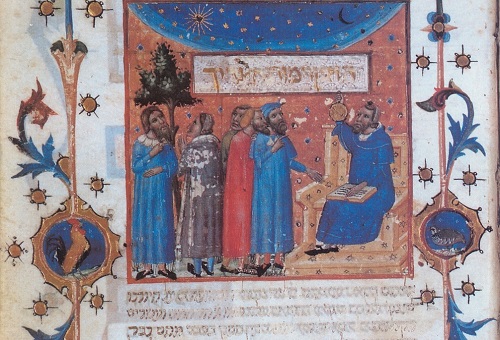
If the average person had to describe a capitalist, he might name “Dickens’ unredeemed Scrooge, or Gordon (‘Greed is good!’) Gecko from the movie Wall Street.” However, the real patron saint of venture capitalism may well be the great Jewish theologian and philosopher Moses Maimonides, writes Laurie Morrow, Ph.D., in a Hanukkah meditation for Acton’s Religion & Liberty Transatlantic website.
“Rambam” believed that the highest form of charity is enabling someone to start a business or take other means so that he will no longer have to beg. Morrow writes:
What a remarkable, refreshing idea: that the highest form of charity is to help talented people find employers who value them, or to become business owners themselves, and thus, potentially, employers of other people in need of work. The giver removes from the struggling person the humiliating stigma of the supplicant. He offers an endorsement of the recipient’s talent and character in the form of recommendations for positions or offers of capital to enable the person to start his own business venture. A time of struggle and despair can be transformed into a time of growth and pride. And she who is raised up by such trust in her talents may well replicate that experience for others down on their luck, and those she benefits may do the same. Such entrepreneurial philanthropy may well generate a kind of multiplier effect that uplifts, not only an individual’s income and his heart, but ultimately generations within his community.
Further resources from the Acton Institute on Judaism and economics:
Judaism, Law & the Free Market: An Analysis by Joseph Isaac Lifshitz
Judaism, Markets, and Capitalism: Separating Myth from Reality by Corinne Sauer and Robert M. Sauer
(Photo credit: Maimonides’ “A Guide for the Perplexed.” Public domain.)

